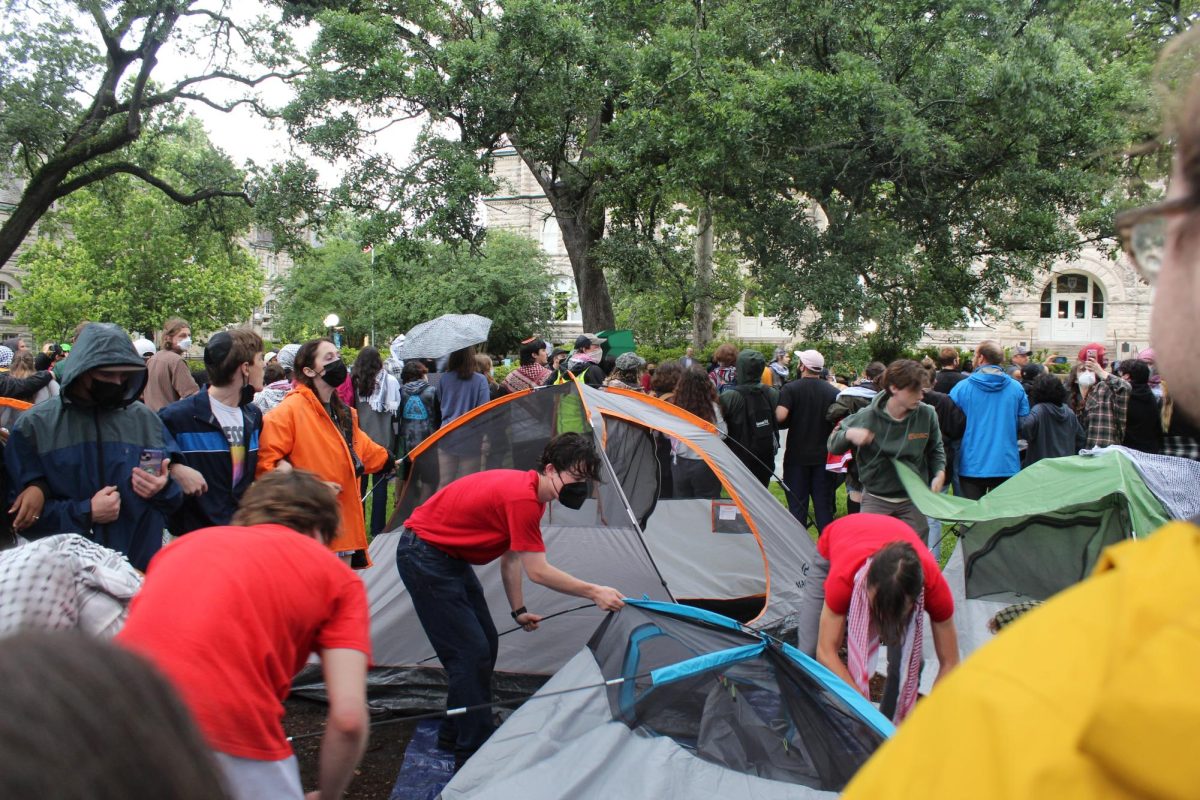
A pro-Palestinian tent encampment continued for a second day at Tulane University with little backlash or crackdown — even as university leaders called the protestors outsiders and trespassers and condemned their actions.
Police arrested six people at Tulane Monday night and the school said “suspensions are being issued.” It is unclear how many students have been suspended.
The protest was peaceful around noon Tuesday. About 30 protesters gathered around at least seven tents and encouraged others to join the encampment and make signs and art for the rally.
In a tense week at universities around the country, schools have met escalating pro-Palestinian protests and tent encampments with hundreds of arrests and suspensions.
But authorities, so far, have let the encampment stay.
The school has not answered questions about how it plans to act on Tuesday or why it is allowing the encampment to remain in place for a second day, even as university leaders condemn the group as outsiders who are illegally trespassing on private property.
Several pro-Palestinian protesters declined to speak to The Hullabaloo about why they were protesting on Tuesday. But Vonne Crandell, a Tulane senior and protest spokesperson, told the Times-Picayune the university sent him and at least three other students disciplinary letters Tuesday morning that said they were suspended and banned from campus.
Tulane has spoken out twice since the encampment began Monday evening.
In an email to students Monday evening, Tulane said protesters “stormed university property” and that police arrested six people for offenses including trespassing, battery on an officer and resisting arrest.
It called free speech a “bedrock tenet of universities” but said Tulane would not tolerate those who trespass or break the law.
Tulane President Mike Fitts wrote to students at 3 a.m. Tuesday and said classes in Gibson, Tilton Memorial and Dinwiddie Halls would move online due to building closures.
“We do not condone and will not allow trespassing, hate speech, antisemitism and bias against religious or ethnic groups, harassment, intimidation, violence, and other criminal acts on any of our campuses,” Fitts wrote.
Tulane administrators have said they generally allow campus protests if they are led by students and do not become disruptive. The school has long differentiated protest that occurs on campus from that which occurs off university property, and on Monday, school leaders called the pro-Palestinian protest on the campus lawn “unlawful,” “unregistered” and “unsanctioned.”
But by noon on Tuesday, the school gave no indication of its next steps.



Leave a Comment